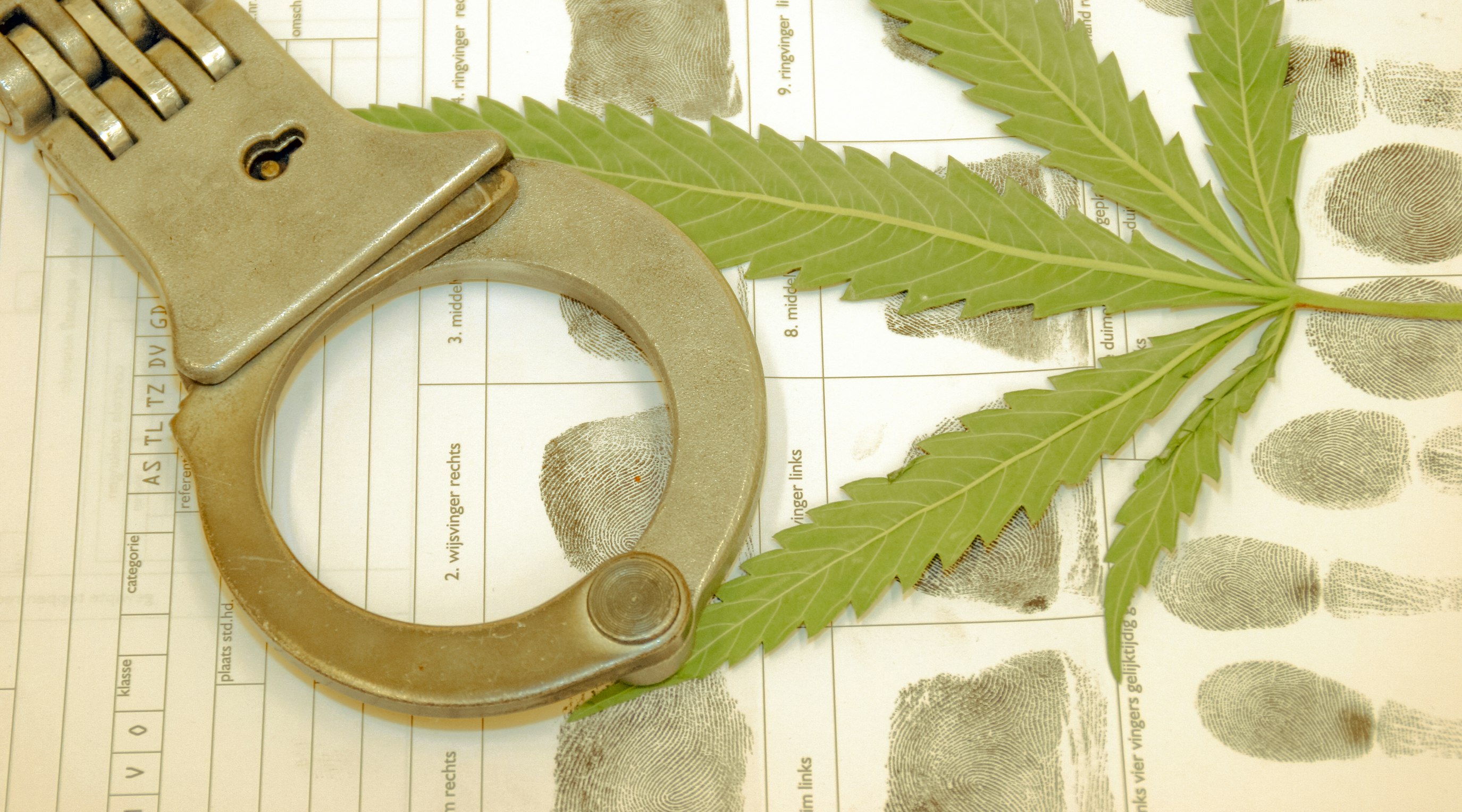The fascinating history of hemp prohibition
9 min read
Lucy MacKinnon
In the UK, the hemp plant has been subject to various hyperbolic regulations depending on the political climate and time period (along with the history of cannabis in the UK). Under the order of monarchs like King Henry VII and Queen Elizabeth I, hemp was an incredibly important plant that British farmers were required to grow by law to sustain both the country and the Navy.
Contents
Around 400 years later, Britain’s official stance on cannabis and hemp plants changed significantly after being influenced by its peers in the League of Nations. This resulted in the prohibition of cannabis cultivation (hemp included) and possession under the 1928 Dangerous Drugs Act.
In the most recent European Cannabis Report, Prohibition Partners argue that the legal and regulatory infrastructures that surround hemp in European countries are mostly outdated. Originally designed to regulate hemp’s agricultural and industrial uses, or to criminalise its cousin cannabis, these frameworks aren’t very detailed, which can make providing legal clarity in the modern-day difficult.
The hemp plant comes from the same family or genus as cannabis. Because they both belong to the Cannabaceae collection, hemp and cannabis have both been repeatedly viewed in the same way by policymakers, which has hindered the uses of hemp across the world.
Unlike cannabis cultivars, hemp plants contain minuscule quantities of the intoxicating compound THC and, so, are very occasionally used recreationally. However, hemp plants can contain high levels of CBD which has demonstrated a number of potential medicinal benefits, so, hemp is often favoured by the health and wellness industry.
Hemp in the UK before prohibition
Although historians believe cannabis and hemp had arrived in Northern Europe by around 500 BC, the UK’s recorded history of hemp use starts in the tenth century, after the discovery of cannabis seeds in a Viking settlement in York.
It is believed that hemp became a common crop in British farming during the Roman period and was grown for a variety of reasons. Later, in the 16th century, King Henry VIII recognised the plant's importance and passed a law that made hemp cultivation mandatory for all British farmers. The King wanted to create a formidable Navy and required high levels of hemp that could be made into ropes, sails, and nets for a large fleet of British ships.
Imposed in 1533, this law ordered each farmer to produce one-quarter of an acre of hemp for every sixty acres of land they owned, and there were harsh fines imposed for underproduction.
In the 1560s, under the reign of Queen Elizabeth I, both the amount of hemp required and the penalties for failing to cultivate said quantities were increased. These new quotas and ominous fines put pressure on British farmers to produce both the amount of hemp and the amount of food that was required to sustain the Island. Much like her father, Queen Elizabeth I was invested in hemp production because of her extreme passion for the British Navy, which she used to defend the country against the Spanish Armada in 1588.
These hemp-clad ships were also used in the expansion of the British Empire, which started under the reign of Queen Elizabeth I in the late 16th century. After capturing and colonising countries across the globe, from Ireland to India, Britain implemented similar tactics in hemp cultivation to the ones they had at home. Quickly, the British Empire became one of the largest producers of hemp in the world.
Beginning of hemp prohibition in the UK
Although hemp cultivation had been enforced during the Elizabethan era, and cannabis consumption had become commonplace in Britain by the Victorian period, at the start of the twentieth century, prohibition surrounding hemp and cannabis emerged.
Despite their differences in psychoactive concentrations, because hemp and cannabis come from the same family, or genus, of plants they have been legally categorised in the same way during drug reform laws. In 1928, Britain added cannabis plants and products to The Dangerous Drugs Act, making both hemp and cannabis illegal unless used by a medical practitioner or scientific researcher.
The Dangerous Drugs Act was originally introduced to Britain in response to the treaties and agreements signed by delegates at the International Opium Convention. Although the International Opium Conference was initially set up by the League of Nations to establish control and regulation surrounding the production and export of opium, the Egyptian official Mohamed El Guindy proposed cannabis should be included in these deliberations.
El Guindy argued that cannabis led to insanity and would ‘become a terrible menace to the whole world’ if it was not included in the drug reform, as he believed it would become the drug of choice in the absence of opium. Of the sixteen nations represented, Britain was one of three that opposed the inclusion of cannabis in these international prohibition recommendations.
However, eventually in 1925 the League of Nations came to an agreement and cannabis was placed under international control by the Geneva Convention. A wave of cannabis and hemp prohibition then swept across Europe as countries individually began to outlaw the plant's possession and cultivation, such as the Dangerous Drugs Act in Britain, which came into effect in 1928.
Much like in the Dangerous Drugs Act, in the Misuse of Drugs Act 1971, hemp sits alongside cannabis in Schedule 2 as a Class B drug. This did change in 2004 under the recommendation of The Misuse of Drugs Advisory Council, and both plant types were recategorised to Class C. However, just five years later this decision was revoked and hemp and cannabis were returned to Class B.
The impact of hemp prohibition
The history of hemp prohibition in the UK exists because of its close relation to its intoxicating cousin, the cannabis plant. As the Dangerous Drugs Act of 1928 criminalised the entire genus of cannabis plants, unless they were used for scientific research or medicinal usage, the British hemp industry essentially dissolved. This is because, at the time, the plant's industrial uses were the primary motivation behind hemp cultivation in Britain.
There was also an upset caused when hemp was included in the Misuse of Drugs Act 1971. After campaigners successfully argued that hemp’s placement alongside cannabis in this act was unsuitable due to their opposing THC potency levels, and that the prohibition of hemp hindered farmers and manufacturers from using such a versatile crop, this decision was overturned.
In 1993 the UK legalised hemp cultivation and production once again, introducing a licensing system run by the Home Office. This change in the law allowed licensed farmers to grow hemp, so long as their plants contained no more than 0.2% THC, and produce hemp-based goods using only the plant's stems and seeds.
This licensing system is still in place today, and specially issued government licences are required in the UK when cultivating, importing or exporting hemp. The cost to apply for a hemp cultivation licence is £580, and it costs around £320 each year to renew. When applying for a hemp licence, farmers or businesses must state what will be the defined ‘end product’ or commercial usage for their crops, such as producing hemp to use its fibres industrially, or to press its seeds for oil.
Efforts to end hemp prohibition in the UK
This type of farming framework and restrictive regulation is unique to the hemp industry and is not seen in other agricultural markets, which is something advocates are campaigning to change. In 2019 The British Hemp Alliance (BHA) was formed by like-minded individuals, farmers, businesses, NGOs, and environmentalists to lobby for further liberalisation one year after the UK legalised medical cannabis.
The British Hemp Alliance is currently campaigning for the THC content restriction imposed on hemp plants to be lifted from 0.2 to 1%, which would allow British farmers to compete at the same level as those in Australia, Switzerland, Uruguay, and Ecuador. Along this same theme, the BHA argues that no part of the plant's anatomy should be restricted, and the use of hemp flowers and leaves should be approved. They feel the licences required to grow hemp should come from the Department of Environment, Food and Rural Affairs as opposed to the same department used by firearms applications in The British Home Office. The BHA says that if all three of these changes were achieved, the UK hemp industry would be able to thrive in the way it once did.
Increasing hemp production in the UK could also greatly benefit the economy. It was recently estimated that if 80,000 hectares of hemp were grown every year, the British economy would be boosted by around £700 billion. This statistic comes from the final report of The University of York, project Hemp30, which also established that the UK only cultivated around 800 hectares of hemp in 2021.
The Hemp30 report also highlights how this plant is of use to everyone, for farmers it can not only be a source of income but serves as a fantastic break crop, an ingredient in animal feed and can also be used in carbon farming.
Hemp can also be used to sustain the environment, in the creation of composites, biofuel or bioenergy, or to help sustain human life as the plant can also be made into textiles, construction materials and food. This report provides a ten-year plan that if implemented could see hemp return to the top of the crop charts and reclaim its title as Britain's most versatile plant.
Conclusion
Hopefully, this article has helped to highlight some of the massive shortcomings that the hemp industry is currently facing here in the UK. In the past two or so decades, we have seen a big shift in both policy and public perception surrounding cannabis and hemp, and so we are optimistic about the future of hemp in this great country of ours.
Releaf understands the importance of medical cannabis in treating various medical conditions. With our tailored monthly packages, specialist consultations for medical cannabis, and a unique medical cannabis card for protection, you can access the treatment you need without worrying about the stigma.
Want to learn more? Head to our fast, free medical cannabis eligibility checker - it takes just 20 seconds to complete, and will give you a much clearer idea of your potential next steps.
Releaf - Let's Rethink Healthcare
Share article
Did you like this article?
It is important to seek medical advice before starting any new treatments. The patient advisors at Releaf are available to provide expert advice and support. Alternatively, click here to book a consultation with one of our specialist doctors.
Elevate your wellness with medical cannabis
Get comprehensive care, convenience, and confidence with an all-in-one treatment plan.
Am I eligible?Authors
With five years of journalism and healthcare content creation under her belt, Lucy strives to improve medical cannabis awareness and access in the UK by producing high quality, credible content.
fact checked
Compliance Director
meet our specialist
Editorial Policy
All of our articles are written by medical cannabis experts, guided by strict sourcing guidelines, and reference peer-reviewed studies and credible academic research. Our expert clinical team and compliance specialists provide valuable insights to ensure accuracy when required. Learn more in our editorial policy.
Need more help?












